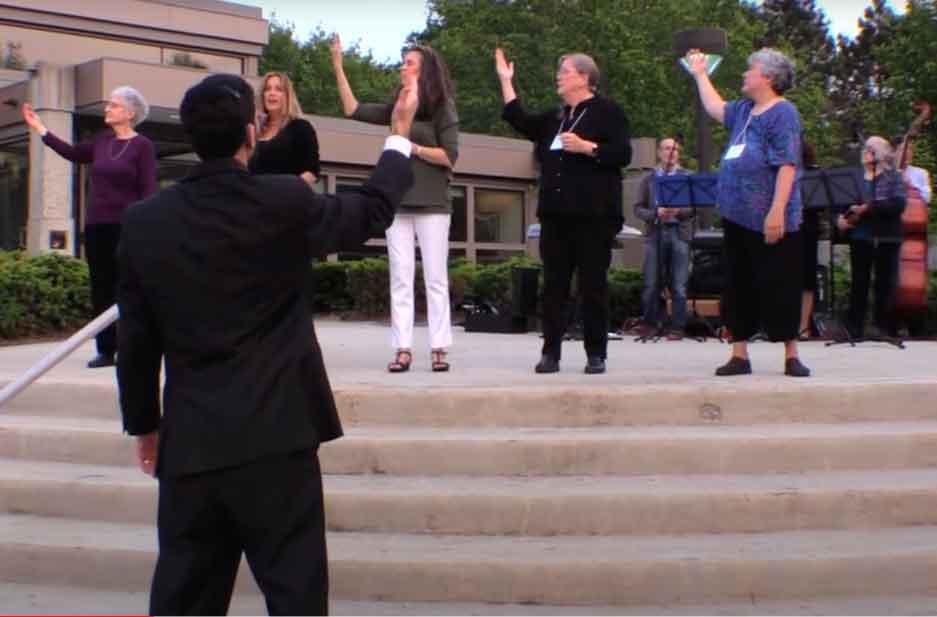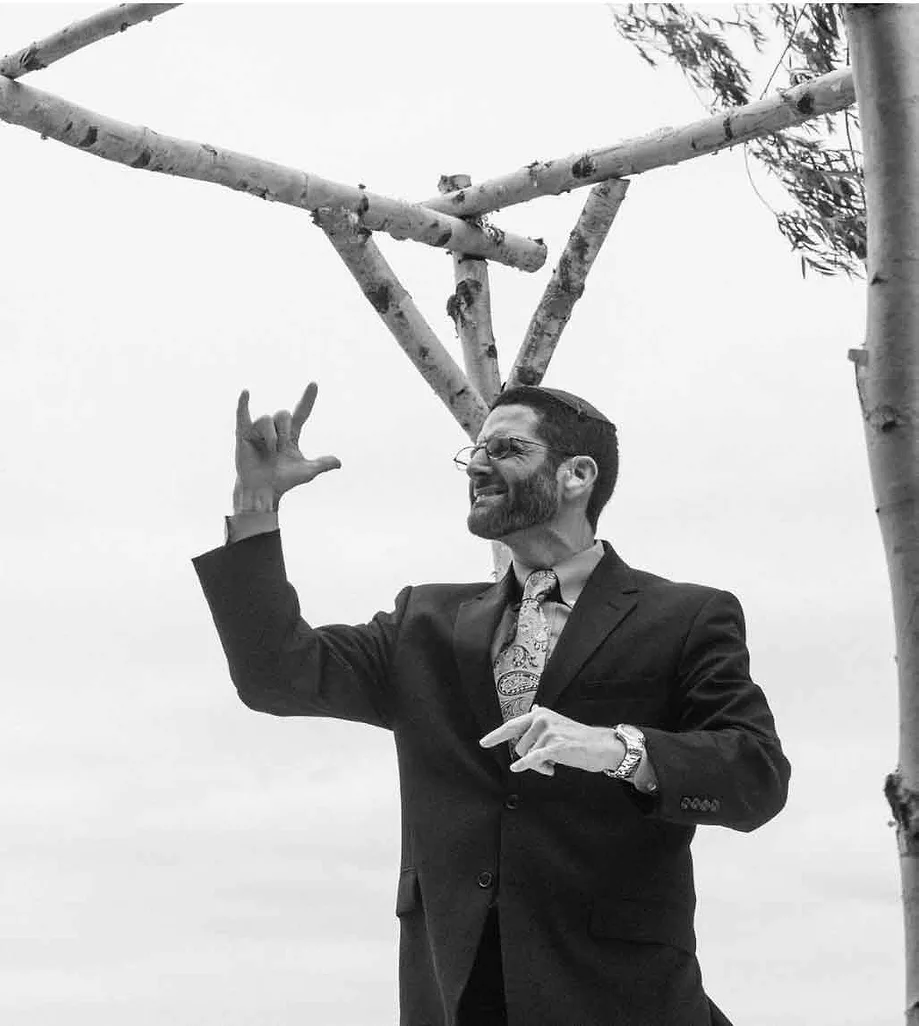The cantor’s final notes echoed through the sanctuary, and a hush fell over the congregation while the rabbi continued conducting—guiding the ASL Choir as they gracefully delivered an additional piece of liturgy, bringing the prayer to its completion.
Living their values—community, joy, and respect for the dignity of every person—is what Kerem Shalom, a progressive synagogue in Concord, MA, is all about. Being inclusive is at the heart of all they do, and there is a heartfelt belief that there can only be true community when all are included, and all programming is accessible.
When Rabbi Darby Leigh (affectionately known as Rabbi Darby) joined the community ten years ago, he became one of only two U.S. rabbis who are deaf to lead hearing congregations. “I thought it would be wonderful to serve a synagogue where there was enough American Sign Language (ASL) awareness that we could lead some community prayers through ASL,” shares Leigh. “Sing and sign include the same letters. They’re very similar. I thought this community would appreciate that instead of your voice being the instrument of prayer—you literally put the words of liturgy into your hands, arms, face, and shoulders.”

Rabbi Darby Leigh directing the ASL Choir
| Courtesy of Kerem ShalomKerem Shalom began offering ASL classes as a precursor to creating an ASL Choir, as choir participants were required to have at least a rudimentary knowledge of ASL. Starting in 2017, choir members began to sign their first prayer, an undertaking that has evolved into an annual tradition. Each year, Rabbi Darby preselects a few pieces of liturgy that he plans to use over the High Holy Days. Choir members choose a prayer and then translate it from Hebrew into English and then into ASL. “ASL is a language with its own grammar and syntax. We are really trying to capture the meaning of the liturgy and not create a word-for-word translation.”
Once the choir has committed the ASL translation to memory, Kerem Shalom Cantor Rosalie Gerut introduces an additional layer by infusing the prayers with her melodious voice, following the choir’s ASL, striving to achieve harmony through synchronization. “If we can get the timing right—that’s magic,” exclaims Rabbi Darby. And then, each fall, during High Holy Days services, the choir unveils a brand new ASL translation, which becomes part of their repertoire. “Witnessing the transcendent beauty of the ASL movement of hands, arms, and fingers during the musical chanting of our Judaic prayers is deeply inspiring,” says Gerut.
Rabbi Darby is especially proud that Kerem Shalom walks the talk. They’ve not only made inclusiveness part of their mission, they’ve taken it to the next level. From the ASL Choir taking part in many Shabbat services throughout the year, to interpreters at numerous services and events, to Hebrew School Reimagined students learning to sign a Hebrew folk song at the end of every community gathering—”It’s part of living our values.” Rabbi Darby hopes the ASL Choir inspires others in the community to study ASL and even consider joining the Kerem Shalom Choir!
Learn more about Kerem Shalom offerings at keremshalom.org.


